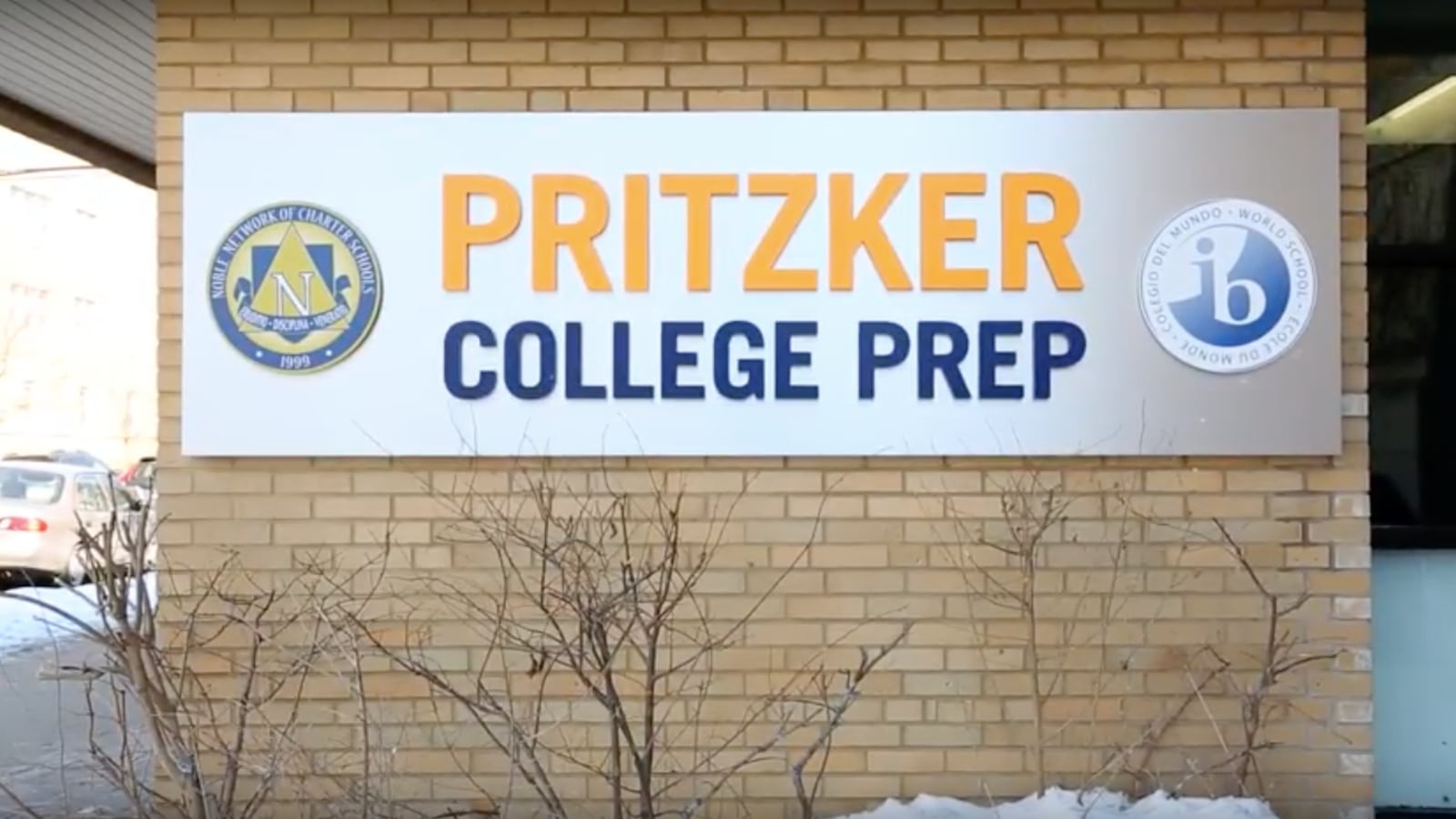The sudden resignation of its CEO and founder Michael Milkie may have caused some turmoil at the Noble Network of schools, but it also has provided fodder for teachers who have been struggling to unionize Chicago’s biggest charter network.
Teachers at Noble say Milkie’s resignation only strengthens their case for why the network needs a union.
“The person who created Noble is leaving because of his own actions that have compromised the integrity of what we do at Noble,” Cara Ladd, a 10th grade teacher at DRW College Prep, a Noble school, told Chalkbeat. “We need a union more than ever before.”
Noble teachers are seeking better conditions, changes to strict rules governing student conduct and a more transparent pay scale.
Milkie, who founded the network in 1999, announced on Nov. 6 that he would be leaving the network at the end of the calendar year. Nearly a week later, Noble President Constance Jones sent a letter to teachers and staff saying that Milkie was asked to resign following revelations about a pattern of “inappropriate behavior with alumni,” which included hand-holding and “an instance of slow-dancing.”
For educators at Noble who want to unionize, reports of Milkie’s misconduct with alumni — and suspicions that leaders delayed responding — bolster their argument that teachers should be more involved in decision-making at the network.
Parents and students have criticized Noble’s practice of charging students money for discipline infractions as well as limiting bathroom breaks, even for menstruating students.
“We’ve always been asked to trust the judgment of Milkie and Noble’s administration,” said Shaun Bruce, a history teacher and learning specialist at Pritzker College Prep, a Noble school. “This shows we can’t really trust their judgment.”
Jones said in a statement that Noble respects the right of teachers to join the Chicago Teachers Union but is concerned about the union’s stance against new charter schools.
“I am deeply concerned about the impact that CTU would have on Noble, since they have opposed the opening of several Noble campuses and fair funding for our students,” the statement read.
Teachers first announced their intention to try to form a union in March 2017, and presented the network’s leadership with more than 100 signatures asking for a “neutrality agreement,” which would allow teachers to campaign for a union without losing their jobs.
But management refused, and in April 2017 educators filed a complaint with the National Labor Relations Board arguing the network was illegally interfering with their unionization efforts. The agency found merit in the teachers’ claims, and Noble settled before a hearing. If the entire network unionized, Noble would become the largest unionized charter in the country, with more than 800 teachers.
Union advocates hope that the example of another charter network, Acero, might serve as a precedent. Two years ago, the influential leader of the group that ran UNO schools, the previous name for Acero, stepped down amidst a scandal. His ouster helped open the doors for a successful union push. Teachers now are threatening a strike against Acero.
Juan Rangel, chief executive of the United Neighborhood Organization, was accused of financial mismanagement. An expose in the Chicago Sun-Times led to investigations by state officials and the Securities and Exchange Commission.
Organizers say Rangel’s resignation undoubtedly helped push school management to negotiate a union agreement they may otherwise not have.
“The situations are comparable,” said Chris Baehrend, who head the charter section of the Chicago Teachers Union. “We saw a whole string of scandals that caused the employer to be open to other neutrality agreements.”
Exploiting vulnerability in leadership is a key part of union strategy, particularly when negative media attention focuses on an institution, labor experts said.
“Fighting with teachers makes you more vulnerable, and in that environment, it can be good to make a deal,” said Bob Bruno, director of the Labor Education Program at the University of Illinois at Urbana-Champaign.
But, he noted, leadership may also be reluctant to make any changes or agreements at a time of transition.
Educators at Noble say they are continuing to build support for a union across campuses. One of the challenges, along with the threat of losing their jobs, is high turnover among teaching staff, one of the issues they hope a strong union contract will address.
“If educators weren’t empowered to have a stronger voice within our schools, there was no way we would be able to achieve all of the goals we have for our kids and students,” Ladd said. “As of right now, we are still building support.”

